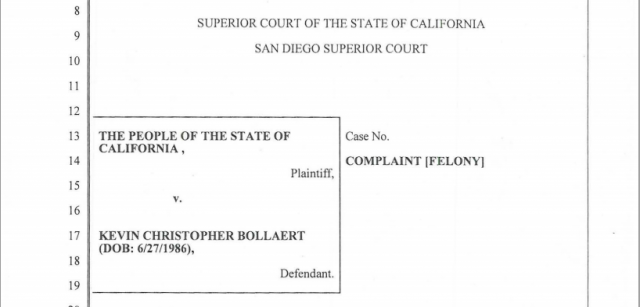SAN DIEGO — A San Diego man has been convicted of running a “revenge porn” website where people posted nude pictures of their ex-lovers, who then had to pay the man to take down the images.
Kevin Bollaert, 28, was found guilty Monday of 27 counts, including identity theft and extortion, and faces up to 20 years in prison. The San Diego County Superior Court jury was unable to reach verdicts on two charges of identity theft and conspiracy, and a judge declared a mistrial on the counts.
It was believed to be the first conviction of a revenge porn website operator, although two months ago a Los Angeles man who posted a topless photo of his ex-girlfriend on Facebook was sentenced to a year in jail for violating California’s new revenge porn law. That law was enacted in October 2013, after the incidents for which Bollaert was charged.
The term “revenge porn” is used because most of the explicit images have been posted online by former lovers in attempts to shame their former partners after a breakup.
